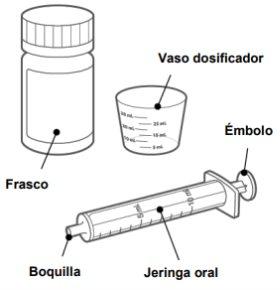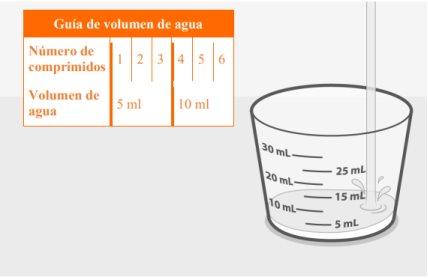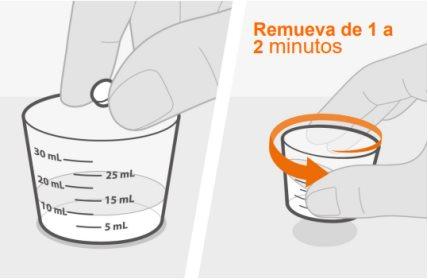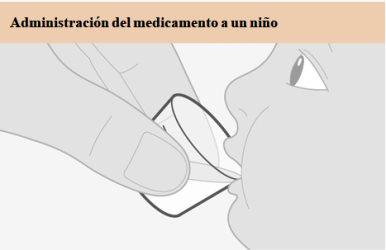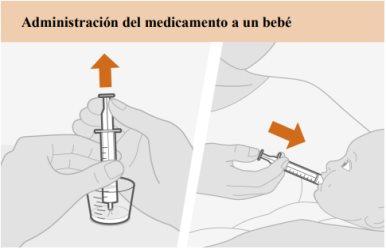
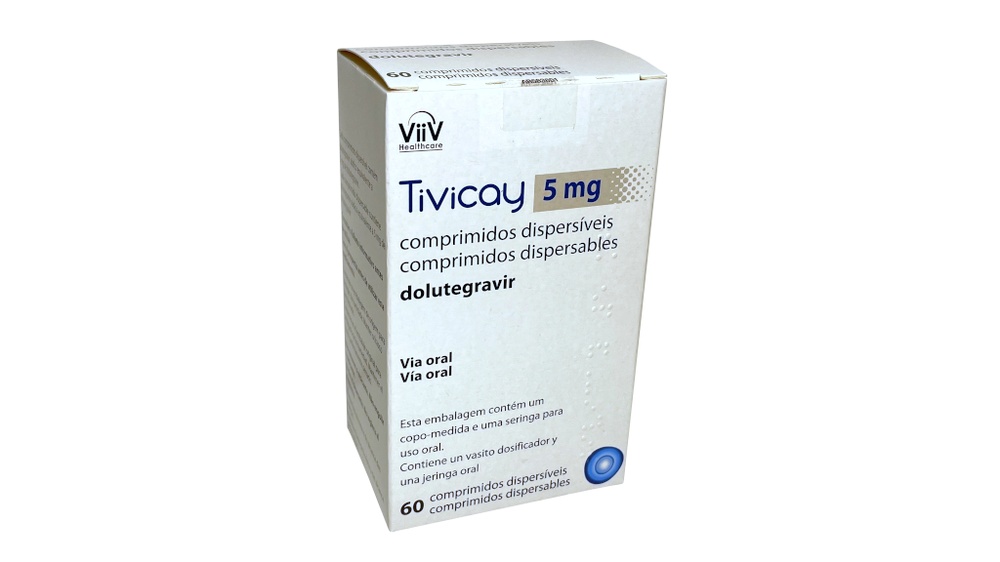
TIVICAY 5 mg COMPRIMIDOS DISPERSÍVEIS

Pergunte a um médico sobre a prescrição de TIVICAY 5 mg COMPRIMIDOS DISPERSÍVEIS

Como usar TIVICAY 5 mg COMPRIMIDOS DISPERSÍVEIS
Introdução
Prospecto: informação para o paciente
Tivicay 5 mg comprimidos dispersáveis
dolutegravir
Leia todo o prospecto detenidamente antes de começar a tomar este medicamento (ou o seu filho, se for o paciente), porque contém informações importantes para si.
- Conserva este prospecto, porque pode ter que voltar a lê-lo.
- Se tiver alguma dúvida, consulte o seu médico ou farmacêutico.
- Este medicamento foi prescrito apenas para si (ou o seu filho, se for o paciente), e não deve dá-lo a outras pessoas, mesmo que tenham os mesmos sintomas que si, porque pode prejudicá-las.
- Se experimentar efeitos adversos, consulte o seu médico ou farmacêutico, mesmo que se trate de efeitos adversos que não aparecem neste prospecto. Ver seção 4.
Conteúdo do prospecto
- O que é Tivicay e para que é utilizado
- O que precisa saber antes de começar a tomar Tivicay
- Como tomar Tivicay
- Possíveis efeitos adversos
- Conservação de Tivicay
- Conteúdo do envase e informação adicional
Também são fornecidas instruções de uso passo a passo.
1. O que é Tivicay e para que é utilizado
Tivicay contém como princípio ativo dolutegravir. Dolutegravir pertence a um grupo de medicamentos antirretrovirais chamados inibidores da integrase (INIs).
Tivicay é utilizado para tratar a infecção por VIH(vírus da imunodeficiência humana) em adultos, adolescentes e crianças com pelo menos 4 semanas e maiores, que pesem pelo menos 3 kg.
Tivicay não cura a infecção por VIH; reduz a quantidade de vírus no seu corpo e mantém em um nível baixo. Como resultado, também aumenta o número de células CD4 no sangue. As células CD4 são um tipo de glóbulos brancos que são importantes para ajudar o seu corpo a combater as infecções.
Nem todas as pessoas respondem ao tratamento com Tivicay da mesma maneira. O seu médico vigiará a eficácia do seu tratamento.
Tivicay sempre é utilizado em combinação com outros medicamentos antirretrovirais (tratamento combinado). Para controlar a sua infecção por VIH e para evitar que a sua doença piore, deve continuar a tomar todos os seus medicamentos, a menos que o seu médico lhe tenha indicado que deixe de tomar algum deles.
2. O que precisa saber antes de começar a tomar Tivicay
Não tome Tivicay:
- se si (ou o seu filho, se for o paciente) é alérgico a dolutegravir ou a algum dos outros componentes deste medicamento (incluídos na seção 6).
- se si (ou o seu filho, se for o paciente) está a tomar outro medicamento chamado fampridina (também conhecido como dalfampridina; utilizado para tratar a esclerose múltipla).
- Se acredita que algo disto se aplica a si (ou ao seu filho), consulte o seu médico.
Advertências e precauções
Esteja atento aos sintomas importantes
Algumas pessoas que tomam medicamentos para a infecção por VIH desenvolvem outros distúrbios, que podem ser graves. Estes incluem:
- sintomas de infecções e inflamação
- dor nas articulações, rigidez e problemas de ossos.
Si precisa saber a quais sinais e sintomas importantes deve estar atento enquanto estiver (ou o seu filho, se for o paciente) a tomar Tivicay.
- Leia a informação na seção 4 deste prospecto.
Crianças
Não dê este medicamento a crianças com menos de 4 semanas de idade, que pesem menos de 3 kg ou com infecção por VIH resistente a outros medicamentos semelhantes a Tivicay. O uso de Tivicay comprimidos dispersáveis em crianças com menos de 4 semanas ou que pesem menos de 3 kg ainda não foi estudado.
As crianças devem comparecer às consultas médicas agendadas(consulte "Crianças e adolescentes" na seção 3 para obter mais informações).
Outros medicamentos e Tivicay
Informa ao seu médico se está a tomar (ou o seu filho, se for o paciente), tomou recentemente ou possa ter que tomar qualquer outro medicamento.
Não tome Tivicaycom o seguinte medicamento:
- fampridina (também conhecido como dalfampridina), utilizado para tratar a esclerose múltipla.
Alguns medicamentos podem afetar o funcionamento de Tivicay, ou aumentar a probabilidade de sofrer efeitos adversos. Tivicay também pode afetar o funcionamento de alguns outros medicamentos.
Informa ao seu médicose está a tomar (ou o seu filho) algum dos seguintes medicamentos:
- metformina, para tratar a diabetes
- medicamentos chamados antiácidos, para tratar a indigestãoe o ardorde estômago. Nãotomeumantiácidodurante as 6 horas antes de tomar Tivicay, ou por lo menos 2 horas após tomar-lo (ver também seção 3)
- suplementos ou preparados multivitamínicos que contenham cálcio, ferro ou magnésio. Se tomar Tivicay com alimentos, pode tomar suplementos ou preparados multivitamínicos que contenham cálcio, ferro ou magnésio ao mesmo tempo que Tivicay. Se não tomar Tivicay com alimentos, não tome um suplemento ou preparado multivitamínico que contenha cálcio, ferro ou magnésiodurante as 6 horas anteriores à tomada de Tivicay, ou durante pelo menos 2 horas após tomar-lo (ver também seção 3)
- etravirina, efavirenz, fosamprenavir/ritonavir, nevirapina ou tipranavir/ritonavir, para tratar a infecção por VIH
- rifampicina, para tratar a tuberculose (TB) e outras infecções bacterianas
- fenitoína e fenobarbital, para tratar a epilepsia
- oxcarbazepina e carbamazepina, para tratar a epilepsiaou o transtorno bipolar
- erva de São João(Hypericum perforatum), um medicamento à base de plantas para tratar a depressão.
- Informa ao seu médico ou farmacêuticose está a tomar (ou o seu filho) algum destes medicamentos. O seu médico pode decidir ajustar a sua dose ou que si necessite de controlos adicionais.
Gravidez
Se está grávida, acredita que possa estar grávida ou tem intenção de ficar grávida:
- Consulte o seu médicosobre os riscos e benefícios de tomar Tivicay.
Informa ao seu médico imediatamente se ficar grávida ou tiver intenção de ficar grávida. O seu médico reverá o seu tratamento. Não interrompa o tratamento com Tivicay sem consultar o seu médico, pois isso poderia prejudicar si e o seu feto.
Amamentação
Não é recomendadoque as mulheres que convivem com o VIH amamentem, porque a infecção por VIH pode ser transmitida ao bebê através do leite materno.
Uma pequena quantidade dos componentes de Tivicay pode passar para o leite materno.
Se está a amamentar ou pensa em amamentar, deve consultar com o seu médico o mais rápido possível.
Condução e uso de máquinas
Tivicay pode fazer com que se sinta mareado e tem outros efeitos adversos que reduzem a sua atenção.
- Não conduza nem opere máquinas, a menos que esteja seguro de que não o afeta.
Tivicay contém menos de 1 mmol de sódio (23 mg) por comprimido; isto é, é essencialmente “isento de sódio”.
3. Como tomar Tivicay
Siga exatamente as instruções de administração deste medicamento indicadas pelo seu médico. Em caso de dúvida, consulte novamente o seu médico ou farmacêutico.
Adultos
- A dose recomendada em adultos é de 30 mg (tomados como seis comprimidos dispersáveis de 5 mg) uma vez ao dia.
- Se está a tomar também outros medicamentos, a dose é de 30 mg (tomados como seis comprimidos dispersáveis de 5 mg) duas vezes ao dia.
- Para o VIH resistentea outros medicamentos semelhantes a Tivicay, a dose recomendada é de 30 mg (tomados como seis comprimidos dispersáveis de 5 mg) duas vezes ao dia.
O seu médico decidirá qual é a dose correta de Tivicay para si.
Crianças e adolescentes
- A dose infantilde Tivicay deve ser ajustada à medida que crescem ou aumentam de peso.
- Por isso, é importante que as crianças compareçam às consultas médicas agendadas.
- As crianças e adolescentes que pesem pelo menos 20 kg podem tomar a dose de adultos de 30 mg, uma vez ao dia ou 15 mg duas vezes ao dia. O seu médico decidirá como deve ser administrado Tivicay.
- Para crianças com pelo menos 4 semanas e que pesem entre 3 e 20 kg, o seu médico decidirá a dose correta de Tivicay, dependendo do peso e da idade do seu filho.
- Se engolir os comprimidos inteiros com água, as crianças não devem engolir mais de um comprimido de cada vez,para reduzir o risco de engasgo.
- Tivicay não deveser utilizado em crianças e adolescentes com infecção por VIH resistentea outros medicamentos semelhantes a Tivicay.
Como tomar os comprimidos dispersáveis
- Os comprimidos dispersáveis podem ser dispersos em água ou engolidos inteiros com água. Quando se dispersam, a quantidade de água depende da quantidade de comprimidos prescritos. Os comprimidos devem ser dispersos completamente antes de serem engolidos.
Consulte as instruções de usocom respeito a como dispersar e administrar os comprimidos utilizando o copo doseador e a seringa oral que são fornecidos neste envase.
- Não mastigue, corte nem triture os comprimidos.
- Tivicay pode ser tomado com ou sem alimentos. Quando tomar Tivicay duas vezes ao dia, o seu médico pode aconselhá-lo a tomá-lo com alimentos.
Tivicay também está disponível em comprimidos revestidos com película. Os comprimidos revestidos com película e os comprimidos dispersáveis não são os mesmos, por isso, não mudeentre comprimidos revestidos com película e comprimidos dispersáveis sem antes consultar com o seu médico.
Medicamentos antiácidos
Os antiácidos, utilizados para tratar a indigestãoe o ardor de estômago, podem interromper a absorção de Tivicay no seu corpo e fazer com que este seja menos eficaz.
Não tome um antiácidodurante as 6 horas antes de tomar Tivicay, ou por lo menos 2 horas após tomar-lo. Outros medicamentos que diminuem a acidez, como ranitidina e omeprazol, podem ser tomados ao mesmo tempo que Tivicay.
- Consulte com o seu médico para que ele o aconselhe sobre quais medicamentos contra a acidez pode tomar com Tivicay.
Suplementos ou preparados multivitamínicosque contenham cálcio, ferro ou magnésio
Os suplementos ou preparados multivitamínicos que contenham cálcio, ferro ou magnésio podem interromper a absorção de Tivicay no seu corpo e fazer com que este seja menos eficaz.
Se tomar Tivicay com alimentos, pode tomar suplementos ou preparados multivitamínicos que contenham cálcio, ferro ou magnésio ao mesmo tempo que Tivicay. Se não tomar Tivicay com alimentos, não tome um suplemento ou preparado multivitamínico que contenha cálcio, ferro ou magnésiodurante as 6 horas anteriores à tomada de Tivicay, ou durante pelo menos 2 horas após tomar-lo.
- Consulte o seu médico para que ele o aconselhe sobre como tomar suplementos ou preparados multivitamínicos que contenham cálcio, ferro ou magnésio com Tivicay.
Se tomar mais Tivicay do que deve
Se si (ou o seu filho) exceder o número de comprimidos de Tivicay, contacte o seu médico ou farmacêutico para que ele o aconselhe. Se for possível, mostre-lhes a caixa de Tivicay.
Se esquecer de tomar Tivicay
Se si (ou o seu filho) esquecer uma dose, tome-a assim que se lembrar. Mas se faltarem menos de 4 horas para a próxima dose, salte essa dose que esqueceu e tome a seguinte no horário habitual. Em seguida, continue o seu tratamento como antes.
- Não tome uma dose duplapara compensar as doses esquecidas.
Não interrompa o tratamento com Tivicay
Tome Tivicay até que o seu médico o indique. Não deixe de tomar sem que o seu médico o aconselhe.
Se tiver alguma outra dúvida sobre o uso deste medicamento, pergunte ao seu médico ou farmacêutico.
4. Possíveis efeitos adversos
Como todos os medicamentos, este medicamento pode produzir efeitos adversos, embora nem todas as pessoas os sofram.
Reações alérgicas
Estas são pouco frequentes em pessoas que tomam Tivicay. Os sinais incluem:
- erupção cutânea
- uma alta temperatura (febre)
- falta de energia (fadiga)
- inchaço, às vezes da face ou da boca (angioedema), causando dificuldade para respirar
- dores musculares ou articulares.
- Procure um médico imediatamente.O seu médico pode decidir realizar testes hepáticos, de rim ou sanguíneos e pode que ele o indique que deixe de tomar Tivicay.
Efeitos adversos muito frequentes
Estes podem afetar mais de 1 de cada 10 pessoas:
- dor de cabeça
- diarreia
- náuseas.
Efeitos adversos frequentes
Estes podem afetar até 1 de cada 10 pessoas:
- erupção cutânea
- picazão (prurito)
- vómitos
- dor de estômago (dor abdominal)
- molestias no estômago (abdomen)
- aumento de peso
- insónia
- mareio
- sonhos anormais
- depressão (sensação de tristeza profunda e falta de autoestima)
- ansiedade
- falta de energia (fadiga)
- gases (flatulência)
- aumento no nível das enzimas do fígado
- aumento no nível das enzimas produzidas nos músculos (creatinfosfoquinase).
Efeitos adversos pouco frequentes
Estes podem afetar até 1 de cada 100 pessoas:
- inflamação do fígado (hepatite)
- tentativa de suicídio*
- pensamentos suicidas*
- crise de angústia
- dor articular
- dor muscular.
*especialmente em pacientes que anteriormente tiveram depressão ou problemas de saúde mental.
Efeitos adversos raros
Estes podem afetar até 1 de cada 1000 pessoas:
- insuficiência do fígado (os sinais podem incluir coloração amarelada da pele e do branco dos olhos ou urina inusualmente escura)
- aumento de bilirrubina (teste de função do fígado) no seu sangue
- suicídio (especialmente em pacientes que anteriormente tiveram depressão ou problemas de saúde mental).
- Informa ao seu médico imediatamentese experimentar algum problema de saúde mental (consulte também outros problemas de saúde mental que aparecem mais acima).
Sintomas de infecção e inflamação
As pessoas com infecção por VIH avançada (SIDA) têm um sistema imunológico debilitado e é mais provável que desenvolvam infecções graves (infecções oportunistas). Tais infecções podem ter-se desenvolvido de forma "silenciosa", não sendo detectadas pelo sistema imunológico debilitado antes de que o tratamento se iniciasse. Depois de iniciar o tratamento, o sistema imunológico se torna mais forte e pode lutar contra estas infecções, o que pode causar sintomas de infecção ou inflamação. Os sintomas geralmente incluem febre, além de alguns dos seguintes:
- dor de cabeça
- dor de estômago
- dificuldade para respirar.
Em casos raros, como o sistema imunológico se torna mais forte, também pode atacar tecidos saudáveis (distúrbios autoimunitários). Os sintomas dos distúrbios autoimunitários podem aparecer muitos meses após começar a tomar medicamentos para tratar a infecção por VIH. Os sintomas podem incluir:
- palpitações (batimentos cardíacos irregulares ou rápidos) ou tremor
- hiperatividade (excessiva inquietude e movimento)
- fraqueza que começa nas mãos e pés e que ascende em direção ao tronco do corpo.
Se si (ou o seu filho) tiver algum sintoma de infecção e inflamaçãoou se notar algum dos sintomas acima:
- Consulte o seu médico imediatamente. Não tome outros medicamentos para a infecção sem
consultar antes com o seu médico.
Dor nas articulações, rigidez e problemas de ossos
Algumas pessoas em tratamento combinado para o VIH desenvolvem osteonecrose. Nesta condição, partes do tecido ósseo morrem devido ao menor aporte de sangue para os ossos. As pessoas podem ser mais propensas a sofrer desta condição:
- se tomaram um tratamento combinado durante um longo período
- se também estiverem a tomar medicamentos anti-inflamatórios chamados corticosteroides
- se beberem álcool
- se o seu sistema imunológico estiver muito debilitado
- se tiverem excesso de peso.
Os sinais da osteonecrose incluem:
- rigidez nas articulações
- molestias e dores nas articulações (especialmente na anca, joelho ou ombro)
- dificuldade de movimento.
Se notar algum destes sintomas:
- Informa ao seu médico.
Efeitos no peso, nos lípidos e na glicose no sangue
Durante o tratamento contra o VIH pode haver um aumento no peso e nos níveis de lípidos e glicose no sangue. Isto está parcialmente relacionado com a recuperação da saúde e o estilo de vida e, às vezes, com os próprios medicamentos para tratar o VIH. O seu médico avaliará estas alterações.
Comunicação de efeitos adversos
Se experimentar algum tipo de efeito adverso, consulte o seu médico ou farmacêutico, mesmo que se trate de possíveis efeitos adversos que não aparecem neste prospecto. Também pode comunicá-los diretamente através do sistema nacional de notificação incluído no Apêndice V. Mediante a comunicação de efeitos adversos, si pode contribuir para fornecer mais informações sobre a segurança deste medicamento.
5. Conservação de Tivicay
Mantenha este medicamento fora da vista e do alcance das crianças.
Não utilize este medicamento após a data de validade que aparece na caixa e frasco após CAD.
Conservar no embalagem original para protegê-lo da humidade. Manter o frasco perfeitamente fechado. Não tire o dessecante. Não ingira o dessecante. Este medicamento não requer nenhuma temperatura especial de conservação.
Os medicamentos não devem ser jogados nos deságues nem na lixeira. Pergunte ao seu farmacêutico como se livrar dos envases e dos medicamentos que já não precisa. Dessa forma, ajudará a proteger o meio ambiente.
6. Conteúdo do envase e informação adicional
Composição de Tivicay
- O princípio ativo é dolutegravir. Cada comprimido contém dolutegravir sódico equivalente a 5 mg de dolutegravir.
- Os demais componentes são manitol (E421), celulosa microcristalina, povidona, carboximetilamido sódico, dióxido de silício coloidal e celulosa microcristalina, crospovidona, estearil fumarato de sódio, sulfato de cálcio dihidrato, sucralosa, aroma a creme de morango, dióxido de titânio (E171), hipromelosa e macrogol.
Aspecto do produto e conteúdo do envase
Os comprimidos dispersáveis de Tivicay 5 mg são brancos, redondos, biconvexos, gravados com “SV H7S” em uma face e “5” na outra. O frasco contém um dessecante para reduzir a humidade. Uma vez aberto mantenha o dessecante no frasco, não o tire.
Os comprimidos dispersáveis são fornecidos em frascos que contêm 60 comprimidos.
Com o envase são fornecidos um copo dosificador e uma seringa para uso oral.
Titular da autorização de comercialização
ViiV Healthcare BV
Van Asch van Wijckstraat 55H
3811 LP Amersfoort
Países Baixos
Responsável pela fabricação
Glaxo Wellcome, S.A., Avda. Extremadura 3, 09400 Aranda de Duero (Burgos), Espanha
Podem solicitar mais informações sobre este medicamento dirigindo-se ao representante local do titular da autorização de comercialização:
Bélgica ViiV Healthcare srl/bv Tel: + 32 (0) 10 85 65 00 | Lituânia ViiV Healthcare BV Tel: + 370 80000334 |
| Luxemburgo ViiV Healthcare srl/bv Bélgica Tel: + 32 (0) 10 85 65 00 |
República Tcheca GlaxoSmithKline, s.r.o. Tel: + 420 222 001 111 | Hungria ViiV Healthcare BV Tel.: + 36 80088309 |
Dinamarca GlaxoSmithKline Pharma A/S Tlf.: + 45 36 35 91 00 | Malta ViiV Healthcare BV Tel: + 356 80065004 |
Alemanha ViiV Healthcare GmbH Tel.: + 49 (0)89 203 0038-10 | Países Baixos ViiV Healthcare BV Tel: + 31 (0) 33 2081199 |
Estônia ViiV Healthcare BV Tel: + 372 8002640 | Noruega GlaxoSmithKline AS Tlf: + 47 22 70 20 00 |
Grécia GlaxoSmithKline Μονοπρóσωπη A.E.B.E. Τηλ: + 30 210 68 82 100 | Áustria GlaxoSmithKline Pharma GmbH Tel: + 43 (0)1 97075 0 |
Espanha Laboratórios ViiV Healthcare, S.L. Tel: + 34 900 923 501 | Polônia GSK Services Sp. z o.o. Tel.: + 48 (0)22 576 9000 |
França ViiV Healthcare SAS Tél.: + 33 (0)1 39 17 69 69 | Portugal VIIVHIV HEALTHCARE, UNIPESSOAL, LDA Tel: + 351 21 094 08 01 |
Croácia ViiV Healthcare BV Tel: + 385 1 800787089 | Romênia ViiV Healthcare BV Tel: + 40800672524 |
Irlanda GlaxoSmithKline (Irlanda) Limited Tel: + 353 (0)1 4955000 | Eslovênia ViiV Healthcare BV Tel: + 386 80688869 |
Islândia Vistor hf. Sími: + 354 535 7000 | República Eslovaca ViiV Healthcare BV Tel: + 421 800500589 |
Itália ViiV Healthcare S.r.l Tel: + 39 (0)45 7741600 | Finlândia GlaxoSmithKline Oy Puh/Tel: + 358 (0)10 30 30 30 |
Chipre ViiV Healthcare BV Τηλ: + 357 80070017 | Suécia GlaxoSmithKline AB Tel: + 46 (0)8 638 93 00 |
Letônia ViiV Healthcare BV Tel: + 371 80205045 | Reino Unido (Irlanda do Norte) ViiV Healthcare BV Tel: + 44 (0)800 221441 |
Data da última revisão deste prospecto: {mês AAAA}
Outras fontes de informação
A informação detalhada deste medicamento está disponível no site da Agência Europeia de Medicamentos: https://www.ema.europa.eu.
Instruções de uso passo a passo
Leia estas instruções de uso antes de administrar uma dose de medicamento. Siga os passos, usando água potável limpa para preparar e administrar uma dose a um bebê ou uma criança que não possa engolir os comprimidos. Informação importante Administre sempre este medicamento exatamente como lhe foi indicado pelo médico. Fale com ele se não tiver certeza. Não mastigue, corte nem triture os comprimidos. Se esqueceu de dar uma dose de medicamento, faça-o assim que lembrar. Mas se tiver que tomar a próxima dose dentro de 4 horas ou menos, omita a dose que esqueceu e tome a seguinte no horário habitual. Em seguida, continue o tratamento como antes. Não administre 2 doses ao mesmo tempo nem administre mais do que o prescrito pelo médico. Se administrar muito medicamento, procure ajuda médica imediatamente. Se seu filho pode e prefere engolir os comprimidos, pode omitir os passos seguintes.
A guia de volume de água acima mostra a quantidade de água necessária para a dose prescrita. |
Use apenas água potável. Não usenenhuma outra bebida ou alimento para preparar a dose. |
|
Se derramar algo do medicamento, limpe. Descarte o resto do medicamento preparado e faça uma nova dose. |
Deve administrar a dose do medicamento dentro de 30 minutos após a preparação da dose.Se passaram mais de 30 minutos, descarte a dose e prepare uma nova dose de medicamento. |
|
Deixe que a criança engula o medicamento. |
Mantenha os comprimidos no frasco. Mantenha o frasco perfeitamente fechado. O frasco contém um dessecante que ajuda a manter os comprimidos secos. Nãoingira o dessecante. Não tireo dessecante. Mantenha todos os medicamentos fora do alcance das crianças.
Quando todos os comprimidos do frasco tiverem sido usados ou não forem mais necessários, descarte o frasco, o copo dosificador e a seringa oral. Descarte-os seguindo as diretrizes locais sobre resíduos domésticos. Receberá um novo copo dosificador e uma seringa oral com o próximo envase. |
- País de registo
- Substância ativa
- Requer receita médicaSim
- Fabricante
- Esta informação é apenas para referência e não constitui aconselhamento médico. Consulte sempre um médico antes de tomar qualquer medicamento. A Oladoctor não se responsabiliza por decisões médicas baseadas neste conteúdo.
- Alternativas a TIVICAY 5 mg COMPRIMIDOS DISPERSÍVEISForma farmacêutica: COMPRIMIDO, 10 mgSubstância ativa: dolutegravirFabricante: Viiv Healthcare B.V.Requer receita médicaForma farmacêutica: COMPRIMIDO, 25 mgSubstância ativa: dolutegravirFabricante: Viiv Healthcare B.V.Requer receita médicaForma farmacêutica: COMPRIMIDO, 50 mgSubstância ativa: dolutegravirFabricante: Viiv Healthcare B.V.Requer receita médica
Alternativas a TIVICAY 5 mg COMPRIMIDOS DISPERSÍVEIS noutros países
As melhores alternativas com o mesmo princípio ativo e efeito terapêutico.
Alternativa a TIVICAY 5 mg COMPRIMIDOS DISPERSÍVEIS em Ukraine
Médicos online para TIVICAY 5 mg COMPRIMIDOS DISPERSÍVEIS
Avaliação de posologia, efeitos secundários, interações, contraindicações e renovação da receita de TIVICAY 5 mg COMPRIMIDOS DISPERSÍVEIS – sujeita a avaliação médica e regras locais.





